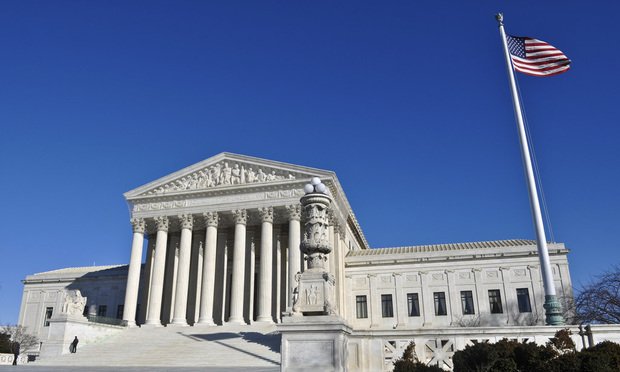 In our Covid-19 driven world, it is more important than ever to complete an estate plan with an executed will, health care proxy and durable power of attorney. As most already know, a will allows you to transfer assets after your death. A health care proxy (“HCP”) gives directions to your self-selected health care agent on how to proceed in a situation where you are unable. This HCP is essential with the current pandemic because if you are unfortunate enough to be on a ventilation system in the hospital and are incapacitated, your health care agent will be making health decisions for you based on the terms in your HCP. Finally, a durable power of attorney gives authority to another individual to sign legal and bank documents on your behalf. All three of these documents should be executed when establishing a thorough estate plan.
In our Covid-19 driven world, it is more important than ever to complete an estate plan with an executed will, health care proxy and durable power of attorney. As most already know, a will allows you to transfer assets after your death. A health care proxy (“HCP”) gives directions to your self-selected health care agent on how to proceed in a situation where you are unable. This HCP is essential with the current pandemic because if you are unfortunate enough to be on a ventilation system in the hospital and are incapacitated, your health care agent will be making health decisions for you based on the terms in your HCP. Finally, a durable power of attorney gives authority to another individual to sign legal and bank documents on your behalf. All three of these documents should be executed when establishing a thorough estate plan.
In Massachusetts as of 2012, executors for your will are now called personal representatives. Even the best drafted will can lead to problems for your estate when you choose the wrong personal representative. Conversely, if you choose the right personal representative, your estate plan may benefit your loved ones and beneficiaries for generations.
The history behind the Nobel Prize is a remarkable story about an executor / personal representative. The creation of the Nobel Prize depended on the executors of Alfred Nobel’s estate.[1] In the will of the Swedish scientist Alfred Nobel, he created international prizes in 1895.[2] After Mr. Nobel invented dynamite in the 1800s, he made a huge fortune selling his invention to mining and military operations.[3]
From 1901 to present, the Nobel prize has been awarded over 570 times to over 900 different people or organizations.[4] In 1888, a French newspaper mistakenly reported that Mr. Nobel died and called him the “Merchant of Death.”[5] After Mr. Nobel read the article, it is believed that he made a final will giving over 90% of his assets to the creation of the Nobel Prize Foundation.[6] However, Mr. Nobel upset his surviving family with his final will because most of his assets were not bequeathed to them.[7]
In Mr. Nobel’s will, Ragnar Sohlman and Rudolf Lilljequist were named executors.[8] The will read: “As Executors of my testamentary dispositions, I hereby appoint Mr. Ragnar Sohlman, resident at Bofors, Vamland, and Mr. Rudolf Lilljequist, 31 Malmskillnadsgatan, Stockholm, and at Bengtsfors near Uddevalla. To compensate for their pains and attention, I grant to Mr. Ragnar Sohlman, who will presumably have to devote most time to this matter, One Hundred Thousand Crowns, and to Mr. Rudolf Lilljequist, Fifty Thousand Crowns; – Alfred Bernhard Nobel, will dated Paris, 27 November 1895.”[9]
To establish the Nobel Prize, Sohlman spent several years.[10] The will did not detail the rules for selecting award recipients.[11] As a further difficulty, Sohlman had to gather all of Mr. Nobel’s assets spread across several European countries.[12] One anecdote describes how Mr. Sohlman and Mr. Lilljequist decided to move most of Mr. Nobel’s assets to Sweden, but they feared that the French government would prevented that vast amount of money (roughly $150 million) from leaving its country.[13] As a result, the executors traveled around Paris with a horse and carriage collecting shares, bonds and legal documents of the Nobel estate. Then, the assets were shipped to Sweden on rail as registered luggage.[14]
Here, Nobel’s will is an interesting example of the application of the “dead hand.”[15] In this context, Nobel’s dead hand was an overwhelmingly huge hairy one. The creation of the Nobel Foundation is unique because the foundation acts like an investment company and is tax exempt from all taxes in Sweden and in the United States.[16] Also, the monetary award is roughly $100 thousand for the recipient.[17] Further, separate committees complete the actual selection process for the award.[18] As stated earlier, the structure and guidelines for the Nobel Prize are the creation of Mr. Sohlman and were not actually in Mr. Nobel’s will.[19] Fortunately, Mr. Sohlman was an exemplary executor who understand Nobel’s intent in his will for the creation of the Nobel prizes.[20]
Thus, one’s dead hand is only as good as his executors.[21] And in Massachusetts, the importance of the right personal representative is just as important.
[1]See The Conundrum of Alfred Nobel, National Geographic 8-11 (July/August 2017) (summarizing historic context and facts surrounding the Nobel Prize creation).
[2]Id.
[3] Evan Andrews, Did a Premature Obituary Inspire the Nobel Prize, History (Dec. 9, 2016), http://www.history.com/news/did-a-premature-obituary-inspire-the-nobel-prize [https://perma.cc/Z3QA-B434].
[4]Nobel Prize Facts, Nobelprize (Mar. 4, 2018), https://www.nobelprize.org/nobel_prizes/facts.
[5]See supra note 3.
[6]See supra note 1.
[7]Id.
[8]Id.
[9]Full Text of Alfred Nobel’s Will (Feb. 15, 2018), https://www.nobelprize.org/alfred_nobel/will/will-full.html [https://perma.cc/S73F-JF5P].
[10]See supra note 1.
[11]Id.
[12]Id.
[13]Id.
[14]Id.
[15]See, e.g., Garrett Ham, The Problem of the Dead Hand, GarrettHam (Sept. 20, 2013), https://www.garrettham.com/dead-hand/ (discussing the limitations of the deceased to control the living).
[16]See supra note 1.
[17]Id.
[18]Id.
[19]Id.
[20]See Ragnar Sohlman – Executor of the Will, Nobelprize (Mar. 5, 2018), https://www.nobelprize.org/alfred_nobel/will/sohlman.html (summarizes how Sohlman executed Nobel’s will).
[21]See Ham, supra note 15.



